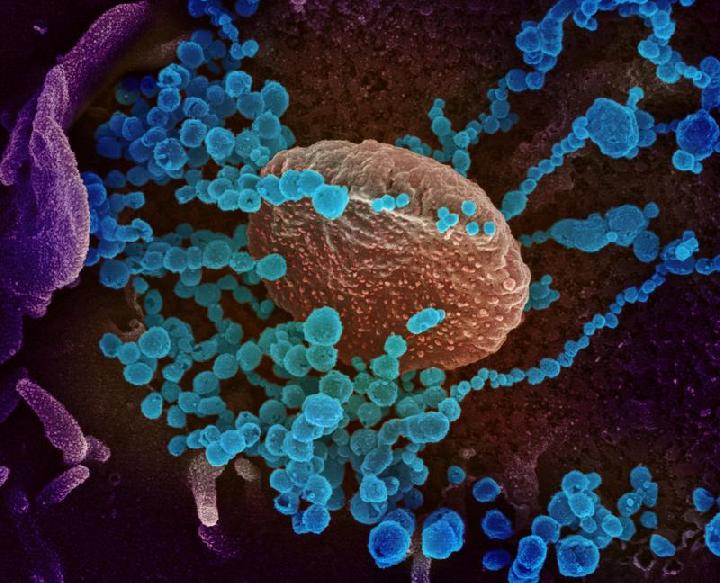Indonesian Society of Respirology: Covid-19's Manifestations Getting More Varied
Translator
Editor
15 August 2020 21:09 WIB

TEMPO.CO, Jakarta - The number of healthcare workers dying from Covid-19 continues to climb. The Indonesian Medical Association (IDI) has recorded that as of August 4, 74 doctors in total including three lung specialists who directly handled Covid-19 patients have died.
THE third and the last lung doctor to lose life while fighting the deadly virus was Andhika Kesuma Putra of the Dr. G.L. Tobing Hospital in Deli Serdang Regency, North Sumatra who passed away on August 1 after battling the disease for two weeks.
Agus Dwi Susanto, Chairman of the Indonesian Society of Respirology (PDPI), said 36 out of 1,167 pulmonologists in Indonesia were Covid-19 positive and three had already died albeit their adherence to the prescribed health protocols. "This shows that medical professionals are still susceptible to infection," Agus told Tempo last Monday, July 27.
He added that the Covid-19 management faced a highly dynamic situation given a wide variety of early symptoms shown by Covid-19 patients. The medical community has even dubbed the Covid-19 "a disease with a thousand faces." As the disease continues to evolve, the challenges doctors face in treating the burgeoning number of patients become even more unsurmountable. "I got information that there's the increasing demand for ventilators," Agus, 45, told Tempo.
Agus received Tempo reporters Mahardika Satria Hadi and Nur Alfiyah at the PDPI headquarters in East Jakarta. The doctor who manages Covid-19 patients at the Persahabatan General Hospital in East Jakarta explained various Covid-19 symptoms, the vulnerability of medical professionals to the coronavirus as well as the strategy to cope with the limited supply of medicines. The interview was supplemented with additional WhatsApp chats on August 4.
Since the large-scale social restrictions were relaxed, the number of Covid-19 cases has ballooned. How are the referral hospitals coping?
Cases are escalating. Lung doctors reported on August 3 of increasing demand for ventilators. Hospitals particularly in the regions where there are large outbreaks including referral hospitals in Jakarta are full. The intensive care unit in the Persahabatan hospital is also full.
How are the conditions of the patients being treated at the Persahabatan hospital?
On average, serious as it is a referral hospital. Most patients are between 30 and 70 years old and the majority of them - around 70 percent - have comorbidity, usually diabetes or hypertension. From the total 510 confirmed cases since March, around 26 percent have died.
The death toll among doctors also continues to climb in spite of the government's statement that we have more than sufficient personal protective equipment (PPE). What exactly has happened?
We coordinate with the Indonesian Medical Association (IDI) to look into this. The association has set up a team to audit why so many medical professionals were infected. For lung specialists alone, 36 out of 1,167 specialists have been tested positive for Covid as of today. Three have died. This shows that medical professionals are still vulnerable to getting infected. The question is how they contracted it. Did they get it from patients or from other people? IDI needs to look into it.
Covid symptoms are evolving. Are there new symptoms that the public should watch out for?
Previously, symptoms used to be only fever, cough, sore throat, headache, weakness, shortness of breath, and nasal congestion. But more and more new symptoms have emerged. Now patients show symptoms such as diarrhea, nausea, vomiting without respiratory problems.
Does it mean Covid-19 can also attack the digestive system?
Yes, because besides the respiratory tract and lungs, the ACE2 receptor is also present on the digestive tract, heart, kidney, and brains. All the blood vessels have this receptor, therefore, Covid-19 can attach to the blood vessels and attack the organs. Some patients reported smell and taste dysfunction or some have headaches as a more dominant symptom.
Have you seen cases with unusual symptoms?
There was a report from our colleagues at the hospital of the University of Indonesia in Depok (West Java) that a patient was tested Covid-19 positive via the spinal fluid test although the swab test result was negative.
How could that happen?
The patient had a persistent headache, a sign of central nervous system problems. After the patient was tested negative via the swab test, they performed a lumbar puncture and tested the spinal fluid and the result came back positive.
Are there more cases with unusual symptoms?
A patient in Banten had itchy and red skin. The x-ray showed the patient had pneumonia so a swab test was performed and the result showed he/she had Covid. So urticaria in this case is the early manifestations of Covid infection.
Read the Full Interview in Tempo English Magazine























